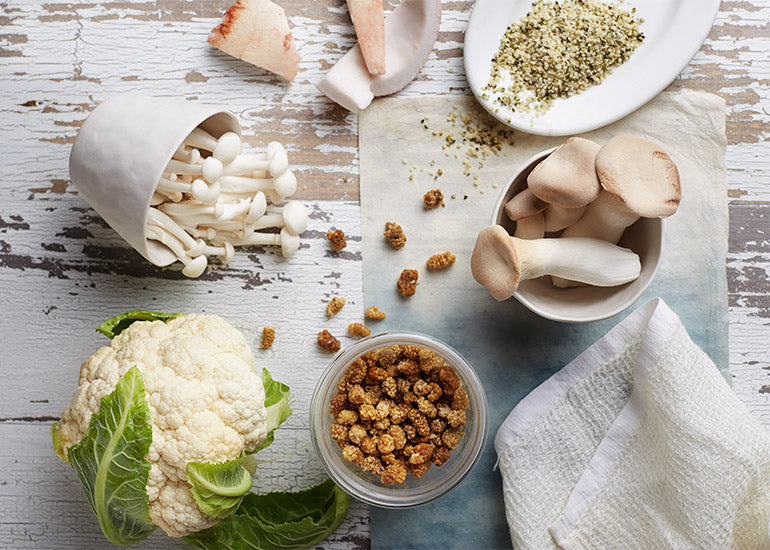We’ve all heard that one of the best ways to enjoy a healthier diet is to eat the rainbow. But, what about white foods? Do they have benefits, too? Turns out, it depends on what kind of white foods you’re talking about.
Typically, when we hear nutritionists bad-mouthing white foods, what they’re really talking about is processed foods: white sugar, white flour, white rice, white bread, etc. These kinds of foods don’t just happen to be white, they’re made to be white—a result of their naturally nutritious elements stripped or bleached away for a longer shelf-life or cheaper product, resulting in what’s essentially an empty calorie food. In this case, no, white foods don’t have benefits.
Fortunately, nature offers white foods of a very different variety. It may come as a surprise to learn just how wonderful some of these white foods really are. Let’s take a look at a few of the the best white foods you can enjoy:
Coconut: Coconut is such a versatile food—its content in the variety of products out there seems almost limitless. From full coconut flesh to coconut water, coconut oil, coconut sugar and more, there are so many ways to incorporate this incredible food into your diet! Coconut is a solid source of cholesterol-free healthy fats, most notably MCTs, which are extremely easy to digest and provide the body with quick energy. Coconut is also an excellent source of fiber, hydrating electrolytes and low-glycemic sugars.
Dried Mulberries: It’s true that white mulberries in their fresh form aren’t a true “white,” but don’t let that persuade you they’re devoid of health benefits! Aside from being sweetly delicious, white mulberries are packed with minerals like iron, loaded with gut-friendly fiber, and serve as a potent source of rare antioxidants like heart-healthy resveratrol. Try dried white mulberries as a take-on-the-go chewy snack.
Mushrooms: Many edible and medicinal mushrooms boast a white color, but are actually some of the most healthy foods on the planet. Aside from being uniquely low in calories (especially for something that seems so satiating when cooked), mushrooms are loaded with phytonutrients that make them a fabulous immune system aid and anti-cancer food. Additional nutrients like vitamin C, magnesium, potassium and selenium round out the miraculous mushroom’s long list of benefits. Even adding products to your daily routine that simply incorporate mushrooms is easier than ever, thanks to Navitas Organics superfood blends like Superfood+ Adaptogen Blend, which combines adaptogen maca powder, reishi mushroom and ashwagandha. Both of these functional blends can be easily added to smoothies or baked into recipes.
Hemp Seeds: Hemp seeds, along with other white seeds and nuts such as macadamia nuts, cashews and sesame seeds are all nutrient-dense superfoods. Rich in protein, healthy fats and fiber, an increasing number of studies prove seeds like hemp are promising contributors to improved heart health. Nuts and seeds don’t have to be white to be of benefit or vise versa, but it’s good to keep in mind that these are white foods that fall on the opposite end of the “empty calorie” spectrum.
So, even for you die-hard rainbow eaters, these summer whites may present a new way to fill some serious nutrient voids.
)

